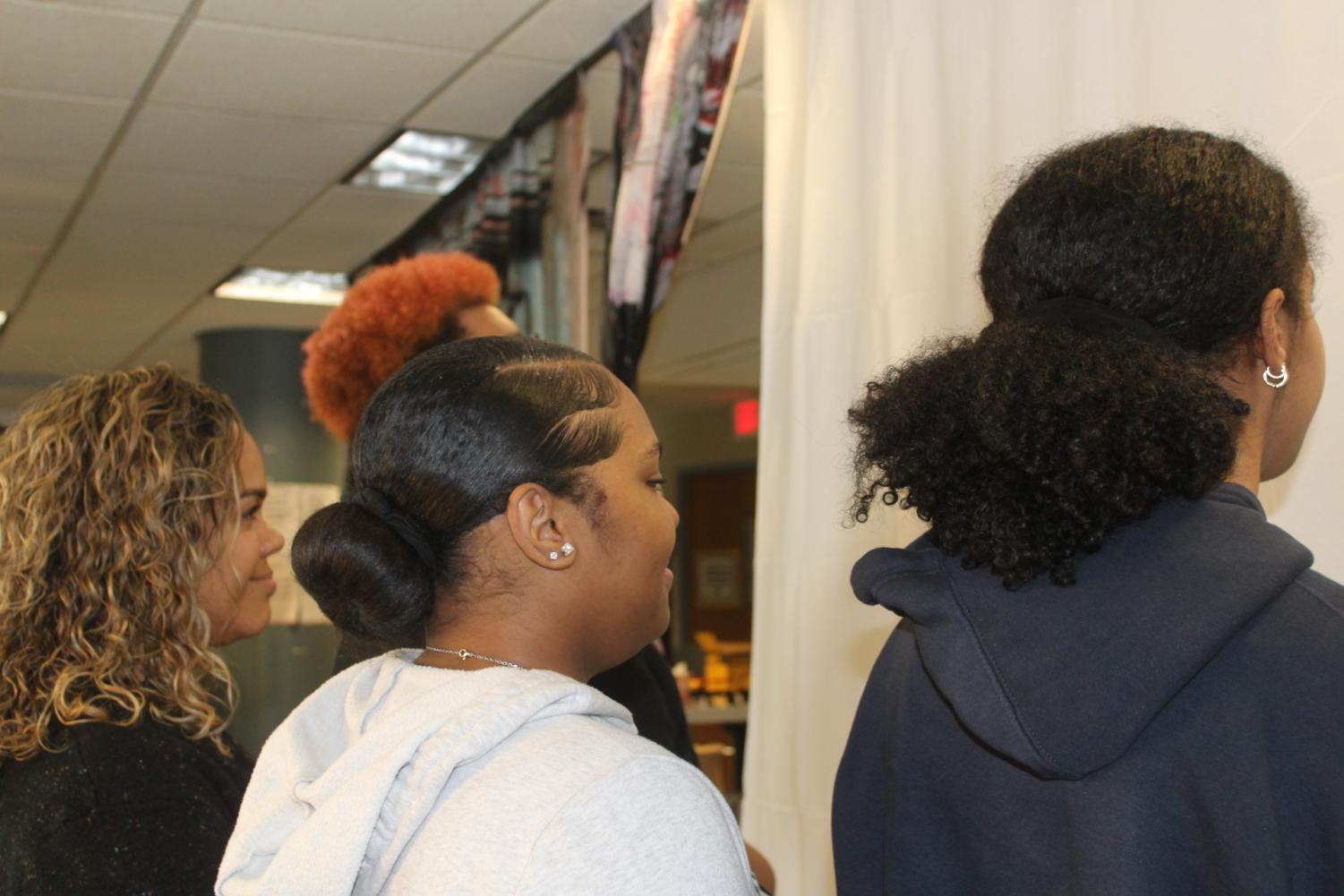The CROWN Act: embracing hair-itage
Minnesota passes new anti-discrimination legislation
March 5, 2023
On Feb. 1, Minnesota Governor Tim Walz signed a law that prohibits discrimination on the basis of hair textures or styles. By adding Minnesota to an expanding list of states passing laws, commonly known as the Creating a Respectful and Open World for Natural Hair (CROWN) Act, many have begun to wonder how this may impact the future of academic and professional settings on a state and nationwide level.
Impacts of having curly hair
Science teacher Alexander Polk said that having curly hair has allowed him to form connections with students who have a similar hair texture.
“Having curly hair has impacted me by letting me have conversations with students about something as simple as, ‘I like your hair,’ and having them give a similar comment back,” Polk said. “It’s helped me connect with students, but beyond that, it hasn’t necessarily impacted me. However, those conversations go deeper than just the comment.”
According to sophomore Jaiden Leary, having curly hair allows attachment to his culture, but it also opens the door to judgment from those around him.
“Being biracial, (hair is) one of the things that helps me attach to Black culture (by) being able to get dreads or curls,” Leary said. “Then being able to get judged by that. I’m on the swim team, I see people stare at me on the opposite side whenever I take my cap off.”
To me, that’s where the biggest issue lies — with people dictating what is and isn’t professional
— Alexander Polk
Sophomore Miles Johnson said that growing up around individuals with different hair types than him has impacted his ability to build strong connections.
“It’s definitely had an impact, because growing up around people that don’t really have the same hair texture as you, you don’t have that connection,” Johnson said. “You think that something is different with you that isn’t for everyone else. It shapes how a person views themselves and how they view other people too.”
According to sophomore Lynea Sallet-Smith, having curly hair can discourage her from participating in activities due to the time it takes to properly care for her hair.
“There are certain things that you can do,” Sallet-Smith said. “You can pretty much do everything. But since your hair is curly, after you do an activity, you have to take extra (time) to do your hair. It’s like, ‘Why would you do all that? Just don’t do the activity in the first place.’”
Ryan Johnson, a stylist who specializes in working with curly hair, said that when he was younger he felt his hair was hard to manage, but he’s learned to embrace it with time.
“Fortunately, I work in an industry where showing off natural hair is acceptable,” Johnson said. “But I know that in every workplace it can look (different). I have curly hair. So when I was younger I felt it was always a mess, it wasn’t kept. People feel that it’s more polished if it’s blown out, but I’m all about embracing the natural length as long as it’s kept.”
How the CROWN Act may impact students at Park
Polk said he believes the CROWN Act won’t have a major impact on students, because he hopes Park has done enough to make students feel safe wearing their natural hair already.
“I’d hope that the issue of racial discrimination that the CROWN Act is targeting isn’t impacting students here,” Polk said. “If it is, we have to fix that. The CROWN Act should, and will, impact students on a state level, but I hope it doesn’t have to impact students at Park.”
According to social studies teacher Emma Engebretson, the CROWN Act may have an impact on students at Park in the future, as students may feel more protected to speak up against discrimination they see or experience.
“The CROWN Act will for sure impact student experience,” Engebretson said. “We’ve got a law now that says that you can’t discriminate based on appearance in schools. That will create a more welcoming environment where students can express themself freely and ensure that there are consequences when discrimination occurs.”
According to Polk, the most significant of the issues the CROWN Act will cover, surrounds what is considered acceptable in a work environment.
“Hopefully, the CROWN Act gets away from the whole concept of ‘classy’-versus-‘dirty’-versus-‘professional’ hair,” Polk said. “To me, that’s where the biggest issue lies — with people dictating what is and isn’t professional.”
Miles Johnson said that before the CROWN Act, he had worried about potential discrimination in the workplace, but he feels more protected after the bill was passed.
“When I started working in a workplace before the bill, there was a higher possibility that they would say, ‘Change your hair, it’s not professional,’” Johnson said. “Now that you legally can’t do that, I feel more safe in having my natural hair out in public.”
Future under the CROWN Act
According to Polk, hair texture can be an impactful part of a student’s life, and he hopes they are able to embrace and feel proud of it.
“Students’ natural hair definitely can, and does, affect their academic experiences,” Polk said. “My hope is that people continue to embrace their natural hair, not because they feel like they need to wear it a certain way, but just because they like it and want to wear it that way.”
Ryan Johnson said that he hopes the CROWN Act allows people to embrace their natural hair more in the hair industry.
“In our industry, hopefully it affects things as far as people embracing their natural hair,” Johnson said. “In my workplace, the employees can embrace the artistry of different hair. We’ve got all kinds of hair going on. I hope people are accepting more of themselves, like, ‘This is what I have.’”
Leary said it’s especially important to have written policies in schools to support students and create a comfortable environment for them to learn.
“It’s very important to expand that into the schools because I hear stories of kids getting pressured into cutting off their dreads or cutting their hair short,” Leary said. “I think that’s important to focus on.”
When I started working in a workplace before the bill, there was a higher possibility that they would say, ‘Change your hair, it’s not professional.’ Now that you legally can’t do that, I feel more safe in having my natural hair out in public.
— Miles Johnson
According to Sallet-Smith, the Storiole could incorporate more curly hair products into its stock to make them more accessible for everyone.
“They have brushes, and if they want to give things to students, they should add more curly hair products,” Sallet-Smith said. “Like a Denman brush, moisturizer… Just more stuff to attract more people who have curly hair. If you just give the normal brush, it won’t really work with curly hair.”
Engebretson said she would like to see more legislation passed surrounding natural hair, both nationally and at Park.
“I hope more states continue to pass bills into laws similar to the CROWN Act. I would love to see us get a national law, too,” Engebretson said. “It’ll be interesting to see what policies, practices and professional development Park puts in place that will also align with the CROWN Act.”

